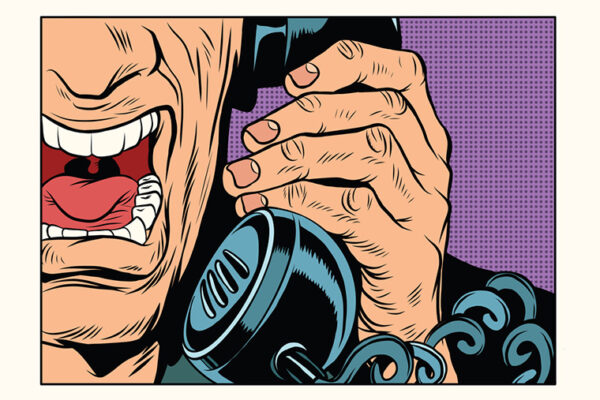Leaders use shortcut to assess who trusts them
A new study that included a pair of researchers from Washington University in St. Louis’ Olin Business School, Kurt Dirks and Andrew Knight, explored what underlies an accurate sense of trust in a business organization.
HIV treatment innovation leads to better lifetime choices, study finds
Domestic violence and illicit drug use plummeted among women who realized they could live decades longer than they’d expected because of a new HIV treatment, according to a new study involving a Washington University in St. Louis health care-innovation researcher.
Words matter: Earnings call language can foreshadow credit risk
Words company officials use in quarterly earnings calls with investors and analysts can be telling. An Olin Business School researcher and co-authors conducted a detailed, machine-learning study of such earnings calls.
You’re so vain, you probably think this study’s about you
In a study co-authored by a Washington University in St. Louis business researcher, a survey that began with Generation X college students in 1992 and revisited when they were around age 41 finds that overall narcissism declined over time — as did the three narcissism components: vanity, leadership and entitlement.
First Person: What it’s like to be a lie spotter
Pamela Meyer, BA ’80, is founder and CEO of Calibrate, a corporate training company that specializes in deception detection. She is author of the 2010 book Liespotting: Proven Techniques to Detect Deception, and her 2011 Ted Talk, “How to Spot a Liar,” has more than 22 million views. Here she talks about deciphering deception.
Corporate America endorses responsibility, values
CEOs belonging to the Business Roundtable publicly committed to corporate responsibility to society as a whole, “a huge statement from one of the most influential groups in American business,” says a Washington University in St. Louis expert in values-based business.
Dishonest acts hurt one’s ability to read others’ emotions
Dishonest deeds diminish a person’s ability to read others’ emotions, or “interpersonal cognition,” finds a new study from four researchers, including one from the Olin Business School at Washington University in St. Louis. Another finding: dishonesty breeds “a vicious cycle.”
It doesn’t pay to play angry when negotiating
A new paper, authored by Washington University in St. Louis faculty and alumni from Olin Business School, reports findings from five different studies of subjects in a negotiation agreement. The takeaway: inorganic anger generally leaves parties of both parts feeling guilty, distrusted and needing to make amends afterward.
How a boss can get too close with workers
Researchers, including a postdoctoral fellow at Olin Business School, have studied where potential relationship problems exist between managers and employees who are close, and how to avoid such pitfalls.
Banner days for women in Olin’s MBA
Schoolwide efforts are among the threads weaved into the fabric of an Olin Business School MBA program ranked No. 4 in the world for women, according to a Financial Times analysis — placing it behind only Stanford and the University of California, Berkeley among U.S. universities, and China’s Shanghai Jiao Tong, but just ahead of Harvard.
Older Stories









